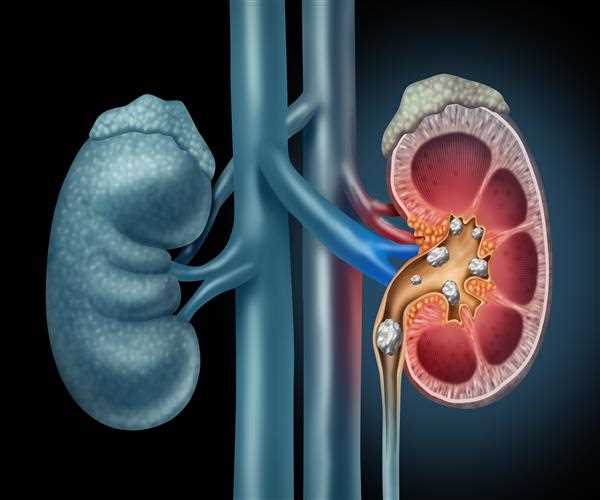Hard deposits that develop inside the kidneys are referred to as kidney stones or renal calculi. They are made up of minerals and salts and can vary in size from tiny grains of sand to larger stones the size of a golf ball.
Symptoms of kidney stones include:
- Severe pain in the lower back, side, or lower abdomen, which can spread to the groin area
- Blood in the urine
- Nausea and vomiting
- Frequent urination
- Cloudy, dark, bloody, or strange-smelling urine
- Having difficulty peeing or experiencing burning while urinating
- A constant need to urinate, but passing only a small amount of urine

Causes
The most common cause of kidney stones is a lack of water in the body. When there is not enough water, urine becomes concentrated and the minerals and salts in it can clump together and form stones. Other causes of kidney stones include certain medical conditions such as gout, certain genetic disorders, and taking certain medications.
Additional elements that may raise the possibility of developing kidney stones include:
- A high-protein diet
- Consuming high amounts of sodium, sugar, or high fructose corn syrup
- A diet high in oxalates (found in foods such as spinach, beet greens, chocolate, and rhubarb)
- A family history of kidney stones
- Obesity
- Dehydration
Diagnosis
Kidney stones can be diagnosed through a variety of methods including urinalysis, blood tests, imaging tests, or analysis of the stone once it has passed. Treatment depends on the size and location of the stone and can include drinking plenty of water to help the stone pass, medication to help the stone pass or pain management, or surgery if the stone is big.
Conclusion
In conclusion, kidney stones are hard deposits that form inside the kidneys and can cause severe pain, nausea and vomiting, and difficulty urinating. The most common cause of kidney stones is a lack of water in the body, but other causes include certain medical conditions, certain genetic disorders, and certain medications. Risk factors include a high-protein diet, high consumption of sodium and sugar, a diet high in oxalates, a family history of kidney stones, obesity, and dehydration. Diagnosis of kidney stones can be done through various methods and treatment options including drinking plenty of water, medication to help the stone pass or pain management, and surgery if the stone is too big to pass or causes an obstruction. It's important to consult a medical professional for diagnosis and treatment if experiencing any symptoms of kidney stones.